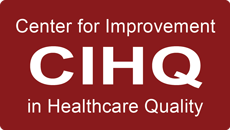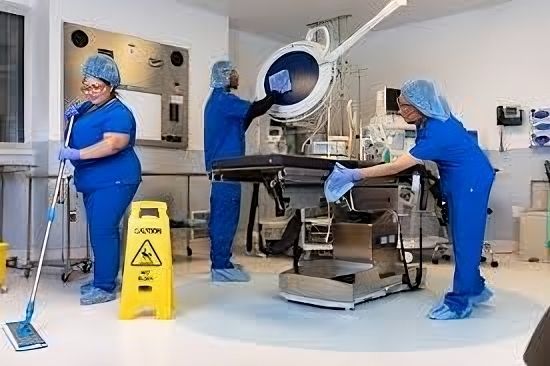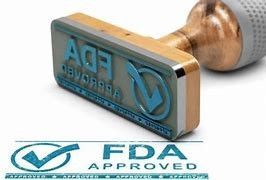Infection Prevention & Quality Improvement Tips
December 2021
By Jody Randall MSN, RN, CIC, HACP-CMS, HACP-PE
CEO and Founder
We would like to take a moment to raise awareness to the following healthcare related events for December 2021: World AIDS Day – Dec. 1, National Handwashing Awareness Week – Dec. 5-11 and National Influenza Vaccination Week. We wish all of our hard working healthcare professionals out there a joyous holiday season from HCE!
Greetings
We hope that everyone is enjoying a wonderful, joyous and peaceful holiday season. Thank you for your ongoing support. We are committed to helping healthcare organizations achieve and maintain ongoing service excellence. We commend all of you for your commitment to quality improvement and patient safety. Each month, we share helpful tips which are based upon ongoing observations by our HCE professionals. We find that these topics are not often understood. Therefore, we share information that we hope will help others.
Infection Prevention Tips
Transportation is typically not the first thing that comes to mind when discussing infection prevention matters. In the world of healthcare however, these two topics are often directly related. It is not uncommon for healthcare facilities to transport instruments or equipment between multiple inter-organizational locations. Facilities can reduce costs by sharing resources such as personnel and equipment. It is important to keep in mind that these practices must comply with AAMI, ANSI, DOT and OSHA standards. It is critical for organizations to develop policies and procedures that meet all requirements. It is also critical to ensure that team members who will be involved in the transporting process are properly trained and have been deemed competent to perform these tasks in a safe and compliant manner.
Vehicles used in the transporting equipment must have a clear separation between clean and dirty items. It is also important to ensure that items being transported are properly labeled. Instruments soiled with blood or bodily fluids should be transported in containers appropriately labeled as "Biohazard". When selecting containers for transport, be sure to choose containers that are leak proof as well as puncture proof. Vehicles transporting soiled instruments should also be equipped with personal protective equipment and spill kits. Be sure to review your state's specific DOT requirements. Vehicles must also be able to maintain acceptable temperature and humidity ranges. Extreme heat or humidity levels can compromise the integrity of sterile instruments which increases risk of infection if instruments are then used in patient care.
We recommend reviewing your facility's current workflow for transporting instruments between facilities. Be sure to develop, review or revise existing policies to ensure current practices are compliant with regulating agencies. Evaluate workflows and interview employees to ensure that they are following safe practices and have a good understanding of your organization's policies and procedures concerning transportation of medical instruments and equipment.
Healthcare Quality Improvement Tips
A Workplace Violence Prevention Program should be included as part of your organization's Quality Assurance Performance Improvement Plan. There are a variety of factors that exist in a healthcare setting that promote an increased risk for workplace violence to occur. Holidays, although joyous, are also stressful at times. This is why we decided to include workplace violence as a topic in our monthly newsletter to raise awareness about workplace violence.
In order to have an effective Workforce Violence Prevention Program, you must have team members who are well educated about the risk factors and appropriate response methods when faced with potentially violent situations. Such situations when they arise tend to escalate very quickly so effective and timely response to these matters are critical. The National Institute for Occupational Safety and Health (NIOSH) offers plenty of free educational materials that can be utilized for training purposes. Active shooter incident planning should also be incorporated into your Emergency Preparedness Plans. Free training materials are easily available through the Department of Homeland Security. You can also consult the Regional Advisory Committee (RAC) in your area for training help and support.
In order to have an effective Workplace Violence Prevention Program, organizational leaders must be invested in promoting the plan by providing a comprehensive education program for all team members and performing drills within the organization. This will help employees be better prepared when faced with these unfortunate and horrifying events.
A few key points to include within your program are education on awareness of behavior that can lead to violence, training employees on how to respond when faced with potentially violent situations, training employees on how to elicit help a situation arises, review of escape routes for employees to safely remove themselves from a situation if necessary and how to barricade themselves for protection if unable to escape and an active shooter has entered the building. We recognize that the concern for violence in the workplace is very real. It is up to each organization to do their part in keeping everyone safe. It is also important for all employees to feel safe on the job. Having an effective Violence Protective Program will ensure that team members feel secure and know exactly what to do when facing a hostile situation that arises.
In Summary
We hope that you find our tips helpful. Regretfully, in the healthcare industry, some of the topics that must be discussed can create a certain level of anxiety for healthcare workers. Ultimately, having well established policies, procedures and educational programs in place can help reduce anxiety across the board for the entire healthcare team.
Get in Touch
Here at HCE we recognize that there are so many challenges healthcare entities face on an ongoing basis and the healthcare climate is changing rapidly and drastically. We continue to encounter challenges as a result of the COVID-19 pandemic. Whether you are attempting to put your facility back on track or opening a new healthcare entity amongst these challenging times, you are likely managing a fair number of challenges. HCE can help! Contact one of our experts today. Tell us your needs and we will customize a plan to assist you and your organization eliminate your day-to-day operation stress.
Happy holidays to you and yours from all of us here at HCE!





